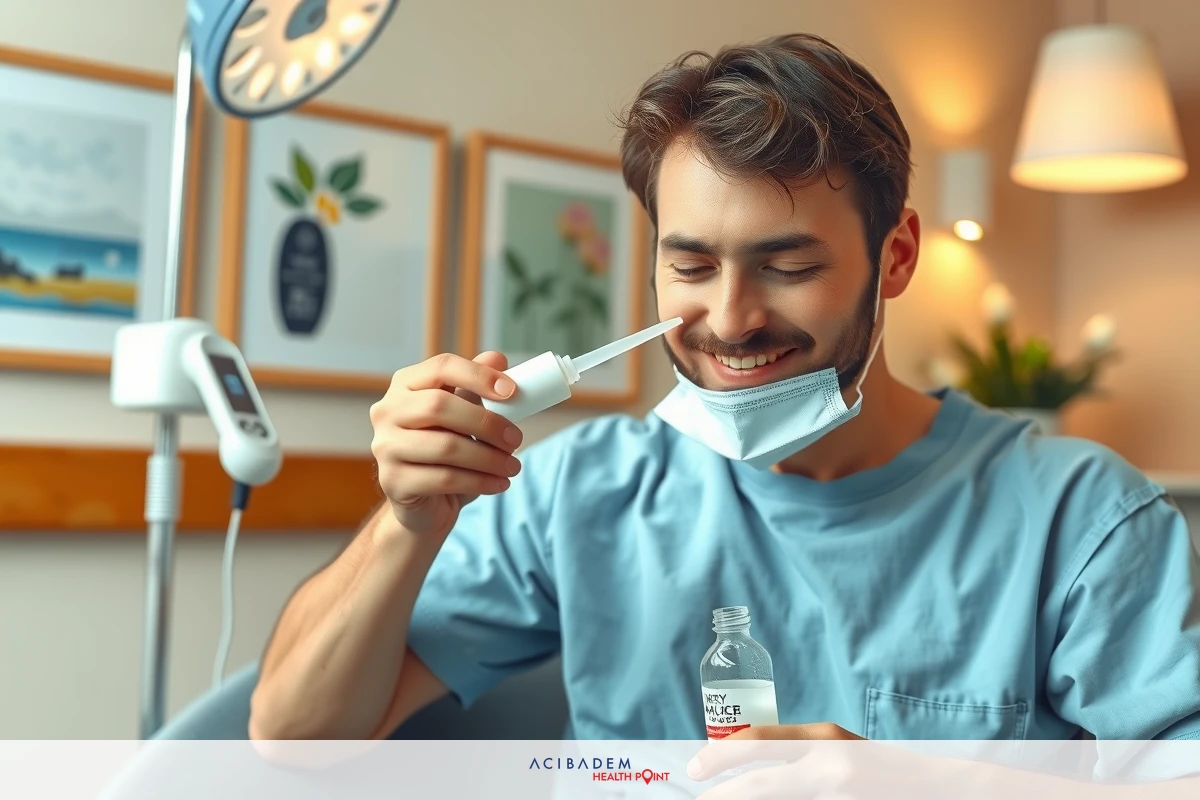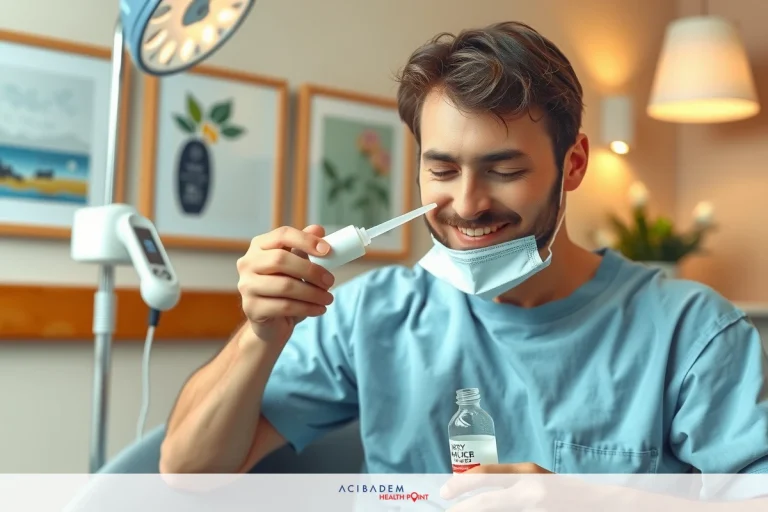Can I Wash My Nose After Rhinoplasty?
Can I Wash My Nose After Rhinoplasty? Rhinoplasty, commonly referred to as a ‘nose job’, is a surgery that changes the shape of the nose. The motivation behind this operation can be to change the appearance of the nose, improve breathing or both. One of the most common questions that patients have after undergoing rhinoplasty is about washing their nose.
Post-operative care plays an integral role in the healing process and outcome of the surgery. A key aspect of this care involves maintaining nasal hygiene, which includes washing your nose. Proper cleaning not only helps keep you comfortable but also aids in preventing infections. This article will offer guidance on when and how to wash your nose after rhinoplasty, and will discuss the benefits of doing so.
When Can I Start Washing My Nose?
Knowing when to start washing your nose after rhinoplasty is crucial in the recovery process. A common misconception is that you can resume normal nasal hygiene immediately post-op. However, this isn’t the case. Your surgeon will likely advise against any nose washing for the first week following your procedure to allow for initial healing and to prevent any potential damage or complications.
During the first week after rhinoplasty, it’s important to remember that your nose is still very sensitive and susceptible to injury. Vigorous cleaning or even mild washing can dislodge stitches, cause bleeding, or reopen wounds. Therefore, patience and a gentle approach are required during these early stages of recovery. Most surgeons recommend starting gentle cleaning with saline solutions or prescribed washes once you’ve passed the one-week post-op mark.
From the second week onwards, you can gradually start adopting a more regular cleaning routine. However, it’s essential to continue with gentle care and avoid aggressive scrubbing. Using a soft cloth or cotton swab soaked in warm water or saline solution can be a safe way to clean around the nostrils without causing harm. It’s also important to follow any specific instructions provided by your surgeon regarding post-op care.
Remember, every patient’s recovery timeline may vary based on individual factors such as age, general health, and the complexity of the surgery. While these guidelines provide a general idea of when you might start washing your nose after rhinoplasty, always consult with your healthcare provider for advice tailored specifically to your situation. Proper post-op care, including appropriately timed nose washing, can significantly contribute to a smooth recovery and successful surgical outcome.
How Should I Wash My Nose?
Proper nasal hygiene is a critical part of post-operative care following rhinoplasty. Washing your nose correctly can not only aid in recovery but also help prevent potential complications. Here are some techniques and precautions to ensure that you are washing your nose effectively and safely.
Use a Saline Solution: A saline solution is typically recommended for cleaning the inside of your nose. It’s gentle, non-irritating, and can effectively clean the nasal passages without causing harm to the healing tissues.
Avoid Aggressive Scrubbing: Gentle cleaning should be your mantra during the initial weeks after rhinoplasty. Avoid any aggressive scrubbing or rubbing, as this could dislodge stitches or cause irritation.
Apply Moisturizer: Keeping the inside of your nose moisturized can help prevent dryness and crusting. Use a water-based moisturizer as recommended by your surgeon.
Use Soft Materials: Always use soft materials like cotton balls or swabs for cleaning. They are less likely to cause

injury or discomfort compared to rougher materials.
Clean Outer Areas Gently: While focusing on the inside, don’t neglect the outer areas of your nose. Clean them gently with warm water and mild soap, avoiding the incision areas.
Follow Surgeon’s Instructions: Your surgeon might provide specific instructions on how to wash your nose post-rhinoplasty. Always adhere to these instructions for optimal recovery.
Remember, each individual’s recovery process is unique. What works well for one person might not be as effective for another. Always consult with your healthcare provider if you have any doubts or concerns about washing your nose after rhinoplasty. Proper care and hygiene can play a significant role in ensuring a smooth recovery and successful surgical outcome.
Benefits of Washing Your Nose After Rhinoplasty
Maintaining good nasal hygiene and regularly washing your nose after rhinoplasty offers several benefits that contribute to a smoother recovery process. One of the primary advantages is the prevention of infections. The period following surgery can leave your nose more susceptible to bacteria, which can lead to infection if proper hygiene isn’t maintained. Regularly washing your nose with saline or prescribed solutions helps to clear away debris and potential pathogens, reducing the risk of post-operative infections.
In addition to preventing infections, washing your nose can also provide relief from discomfort that may arise during the healing process. Following rhinoplasty, patients often experience symptoms such as dryness, itching, and crusting within the nasal passage. These symptoms can cause significant discomfort if not addressed. Regular cleaning helps to alleviate these symptoms by keeping the nasal passage clean and moisturized. Furthermore, a clean nasal passage allows for better airflow, which can lead to improved breathing and overall comfort during the recovery period.
Lastly, regular washing aids in promoting faster healing. By keeping the surgical area clean, you can help ensure an optimal environment for healing. This can potentially reduce the duration of your recovery period and lead to better surgical outcomes. Moreover, consistent nasal hygiene post-rhinoplasty can also contribute to better long-term health for your nose beyond the immediate recovery period. It’s essential, however, always to follow your surgeon’s specific instructions regarding when and how to wash your nose to avoid causing any harm while reaping these benefits.
Frequently Asked Questions
When can I start washing my nose after rhinoplasty?
It is generally recommended to wait for at least one week before starting to wash your nose after rhinoplasty. This allows for initial healing and reduces the risk of complications. However, it's important to consult with your surgeon for specific instructions based on your individual case.
Can I use regular soap to wash my nose after rhinoplasty?
It is best to avoid using regular soap on your nose after rhinoplasty, as it can be too harsh and drying. Instead, use a gentle cleanser or a saline solution recommended by your surgeon to clean the inside and outside of your nose.
How often should I wash my nose after rhinoplasty?
The frequency of nose washing may vary depending on your surgeon's recommendations and your individual healing process. Generally, washing your nose once or twice a day is sufficient. However, it's important not to overdo it, as excessive washing can disrupt the healing process.
Is it normal to experience discomfort while washing my nose after rhinoplasty?
Some mild discomfort or sensitivity while washing your nose after rhinoplasty is normal, especially in the early stages of recovery. However, if you experience severe pain, excessive bleeding, or any concerning symptoms, it's crucial to contact your surgeon for further evaluation.
Can I blow my nose after rhinoplasty?
Blowing your nose forcefully should be avoided for several weeks following rhinoplasty, as it can disrupt the healing process and potentially cause complications. If you need to clear your nasal passages, gently sniffing or using a saline nasal spray may be recommended instead. Consult with your surgeon for specific guidelines on blowing your nose post-rhinoplasty.











